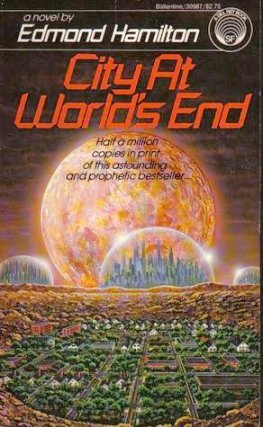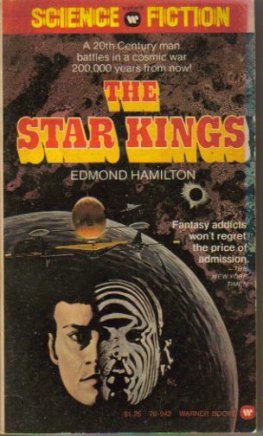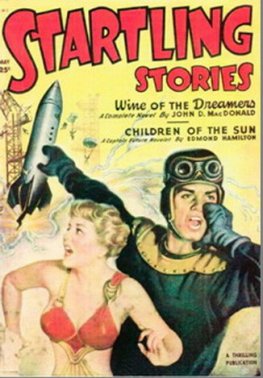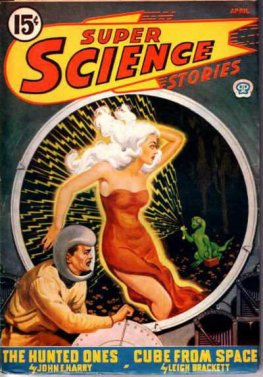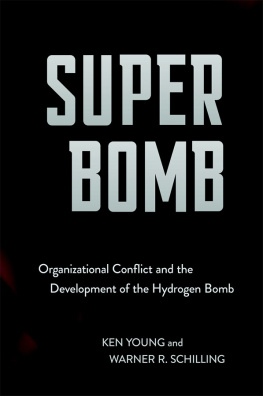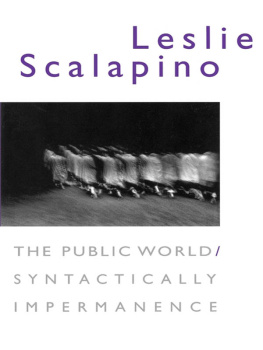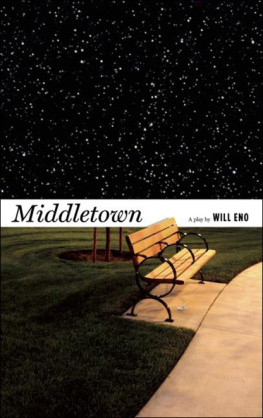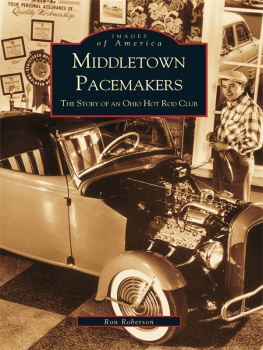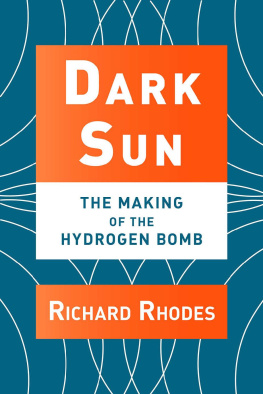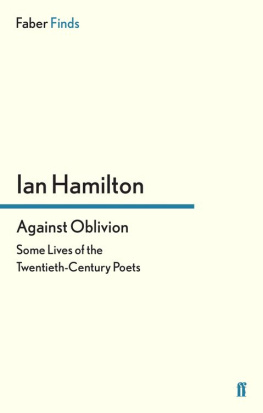Edmond Hamilton
CITY AT WORLDS END

Kenniston realized afterward that it was like death. You knew you were going to die someday, but you didnt believe it. He had known that there was danger of the long-dreaded atomic war beginning with a sneak punch, but he hadnt really believed it.
Not until that June morning when the missile came down on Middletown. And then there was no time for realization. You dont hear or see a thing that comes faster than sound. One moment, he was striding down Mill Street toward the plant, getting ready to speak to the policeman coming toward him. The next moment, the sky split open.
It split wide open, and above the whole town there was a burn and blaze of light so swift, so violent, that it seemed the air itself had burst in-to instantaneous flame. In that fraction of a second, as the sky flared and the ground heaved wildly under his feet, Kenniston knew that the surprise attack had come, and that the first of the long-feared super-atomic bombs had exploded overhead.
Shock, thought Kenniston, as his mouth crushed against the grimy sidewalk. The shock that keeps a dying man from feeling pain. He lay there, waiting for the ultimate destruction, and the first eye-blinding flare across the heavens faded and the shuddering world grew still. It was over, as quickly as that.
He ought to be dead. He thought it very probable that he was dying right now, which would explain the fading light and the ominous quiet.
But in spite of that he raised his head, and then scrambled shakily to his feet, gasping over his own wild heartbeats, fighting an animal urge to run for the mere sake of running. He looked down Mill Street. He expected to see pulverized buildings, smoking craters, fire and steam and devastation. But what he saw was more stunning than that, and in a strange way, more awful.
He saw Middletown lying unchanged and peaceful in the sunlight.
The policeman he had been going to speak to was still there ahead of him. He was getting up slowly from his hands and knees, where the quake had thrown him. His mouth hung open and his cap had fallen off.
His eyes were very wide and dazed and frightened. Beyond him was an old woman with a shawl over her head. She, too, had been there before.
She was clinging now to a wall, the sack of groceries she had carried split open around her feet, spilling onions and cans of soup across the walk.
Cars and street-cars were still moving along the street in the distance, beginning erratically to jerk to a halt. Apart from these small things, nothing was different, nothing at all.
The policeman came up to Kenniston. He looked like a young, efficient officer. Or he would have, if his face had not gone so slack and his eyes so stunned. He asked hoarsely:
What happened?
Kenniston answered, and the words sounded queer and improbable as he said them. Weve been hit by a bomba super-atomic.
The policeman stared at him. Are you crazy?
Yes, said Kenniston, I think maybe I am. I think thats the only explanation.
His brain had begun to pound. The air felt suddenly cold and strange.
The sunshine was duskier and redder and did not warm him now. The woman in the shawl was crying. Presently, still weeping, she got painfully down upon her thick old knees and Kenniston thought she was going to pray, but instead she began to gather up her onions, fumbling with them as a child does, trying to fit them into the broken paper bag.
Look, said the policeman, Ive read stuff about those super-atomic bombs, in the papers. It said they were thousands of times more powerful than the atom-bombs they used to have. If one of them hit any place there wouldnt be anything left of it. His voice was getting stronger. He was convincing himself. So no super-atomic bomb could have hit us. It couldnt have been that.
You saw that terrific flash in the sky, didnt you? said Kenniston.
Sure I did, but And then the policemans face cleared. Say, it was a fizzle. Thats what it was. This super-atomic bomb theyve been scaring the world withit turned out to be just a fizzle. He laughed noisily, in vast relief. Isnt that rich? They tell for years what terrible things its going to do, and then it just makes a big fizz and flash like a bad Fourth of July firecracker!
It could be true, Kenniston thought with a wild surge of hope. It could be true.
And then he looked up and saw the Sun.
It was maybe a bluff, all the time, the policemans voice rattled on. They maybe didnt really have any super-atomic bomb at all.
Kenniston, without lowering his gaze, spoke in a dry whisper. They had them, all right. And they used one on us. And I think were dead and dont know it yet We dont know yet that were only ghosts and not living on Earth any more.
Not on Earth? said the policeman angrily. Now, listen
And then his voice trailed away to silence as he followed Kennistons staring gaze and looked up at the Sun.
It wasnt the Sun. Not the Sun they and all the generations of men had known as a golden, dazzling orb. They could look right at this Sun, without blinking. They could stare at it steadily, for it was no more than a very big, dull-glowing red ball with tiny flames writhing around its edges. It was higher in the sky now than it had been before. And the air was cold. Its in the wrong place, said the policeman. And it looks different. He groped in half-forgotten high-school science for an explanation. Refraction. Dust that that fizzle-bomb stirred up
Kenniston didnt tell him. What was the use? What was the good of telling him what he, as a scientist, knewthat no conceivable refraction could make the Sun look like that. But he said, Maybe youre right.
Sure Im right, said the policeman, loudly. He didnt look up at the sky and Sun, any more. He seemed to avoid looking at them.
Kenniston started on down Mill Street. He had been on his way to the Lab, when this happened. He kept on going now. He wanted to hear what Hubble and the others would say about this.
He laughed a little. I am a ghost, going to talk with other ghosts about our sudden deaths. Then he told himself fiercely, Stop that! Youre a scientist. What good is your science if it cracks up in the face of an unexplained phenomenon?
That, certainly, was an understatement. A super-atomic bomb went off over a quiet little Midwestern town of fifty thousand people, and it didnt change a thing except to put a new Sun into the sky. And you called that an unexplained phenomenon.
Kenniston walked on down the street. He walked fast, for the air was unseasonably cold. He didnt stop to talk to the bewildered-looking people he met. They were mostly men who had been on their way to work in Middletowns mills when it had happened. They stood now, discussing the sudden flash and shock. The word Kenniston heard most often was earthquake. They didnt look too upset, these men. They looked excited and a little bit glad that something had happened to interrupt their drab daily routine. Some of them were staring up at that strange, dull-red Sun, but they seemed more perplexed than disturbed.
The air was cold and musty. And the red, dusky sunlight was queer.
But that hadnt disturbed these men too much. It was, after all, not much stranger than the chill and the lurid light that often foreshadow a Midwestern thunderstorm.
Kenniston turned in at the gate of the smoke-grimed brick structure that bore the sign, Industrial Research Laboratories. The watchman at the gate nodded to him unperturbedly as he let him through.
Neither the watchman nor any of Middletowns fifty thousand people, except a few city officials, knew that this supposed industrial laboratory actually housed one of the key nerve centers of Americas atomic defense setup.

